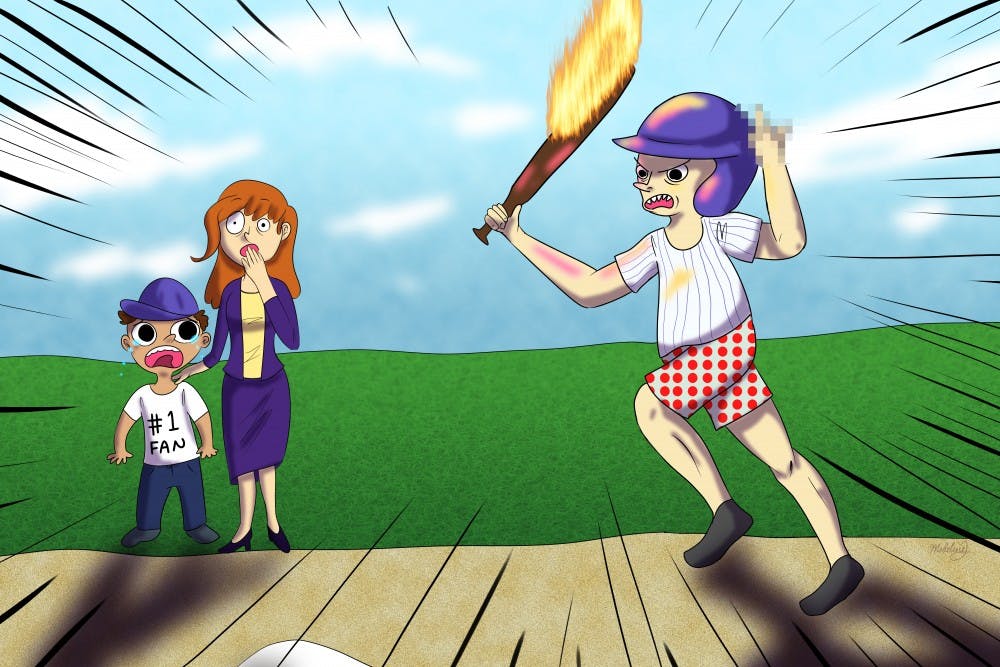In our society, sports are viewed as attractions that distract us from the problems we face in everyday life. Our society has come to perceive the athletes as role models for our communities.
Professional athletes such as Red Sox second baseman Dustin Pedroia, Hall of Fame outfielder Reggie Jackson and Rockets superstar guard James Harden are examples of athletes who represent our school as role models for the Sun Devil community.
Jackson's Mr. October Foundation helps educate underprivileged minority children. Although, this ASU alumnus may be a great role model, not all professional athletes fit that mold.
Poor leadership and behavior can be seen in the incident that occurred during the third game of the World Series between the Houston Astros' Yuli Gurriel and the Los Angeles Dodgers' Yu Darvish. After homering off of Darvish, Gurriel was caught on camera making a racist gesture in the dugout toward Darvish.
In a moment that defined the maturity for both men, Darvish took the high road by saying that “no one is perfect” and that he is “counting on everyone’s big love.” An apology was issued by Gurriel on the incident, but the event still shocked the sports world.
This year’s Fall Classic had an average of 18.9 million viewers. With a national public audience of that magnitude, it should be expected that the players behave in a way that reflects the millions of people watching at home.
"Kids look up to athletes," Scott Bordow, Suns beat writer for the Arizona Republic, said. "That's why they have jerseys on their backs."
Just last month, Carolina Panthers quarterback Cam Newton was caught saying an offensive, sexist comment to Jourdan Rodrigue, ASU alumna and Panthers beat writer for the Charlotte Observer. She had asked Newton about routes, and in response, he said it was "funny to hear a female talk about routes."
Newton, who was the first overall pick in the 2011 NFL Draft and the 2015 MVP, has an undeniably large following. When millions of people are watching, the consequences of a public figure's behavior speaks volumes.
"Charles Barkley said a long time ago that athletes are not role models, but they are," Bordow said. "Even if they're not by choice, they are by their profession."
Although the sports world has seen its fair share of inexcusable behavior from its athletes, professional sports as a whole are taking the right steps forward toward creating better role models.
In the NBA, players and coaches such as San Antonio Spurs head coach Gregg Popovich and Cleveland Cavaliers small forward LeBron James have criticized President Donald Trump when he withdrew the Golden State Warriors' invitation to the White House after point guard Stephen Curry already said he was not going.
Whether you agree or disagree with the NBA’s objections toward the President, James, Popovich and others have shown leadership by saying what they believe about such an influential figure in this country.
"I commend NBA players for speaking out. You have guys like Lebron James and others who are really standing up and saying what they believe in," Bordow said.
The sports world has its fair share of good and bad role models, but it is safe to say that all of these role models have a profound impact on our society.
Reach the columnist at kokiriley3@gmail.com and on twitter @Kokiriley.
Editor’s note: The opinions presented in this column are the author’s and do not imply any endorsement from The State Press or its editors.
Want to join the conversation? Send an email to opiniondesk.statepress@gmail.com. Keep letters under 500 words and be sure to include your university affiliation. Anonymity will not be granted.
Like The State Press on Facebook and follow @statepress on Twitter.




